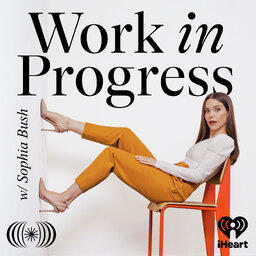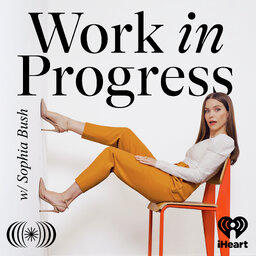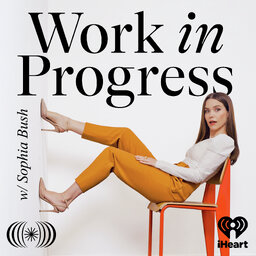Lori Gottlieb is a practicing psychotherapist, author of the New York Times bestseller “Maybe You Should Talk to Someone,” writer of The Atlantic’s weekly “Dear Therapist” advice column, and co-host of the popular “Dear Therapists” podcast. Lori joins Sophia for an intentional discussion about owning our joy and desires, how we're often unreliable narrators, and conversations that have opened up from her TV show that's being developed, based on her book. Lori also dives into things we can do to improve our emotional wellbeing and how we're all living in between "the dash."
Executive Producers: Sophia Bush & Rabbit Grin Productions
Associate Producers: Caitlin Lee & Samantha Skelton
Editor: Josh Windisch
Artwork by the Hoodzpah Sisters
This show is brought to you by Brilliant Anatomy.
In 1 playlist(s)
Work in Progress with Sophia Bush
Work in Progress with Sophia Bush features frank, funny, personal, professional, and sometimes even …Social links
Follow podcast
Recent clips

Work in Progress: Mika Brzezinski
1:01:11

Work In Progress: Sophia answers fan questions
23:52

Work in Progress: Rory Uphold
1:07:05
 Work in Progress with Sophia Bush
Work in Progress with Sophia Bush